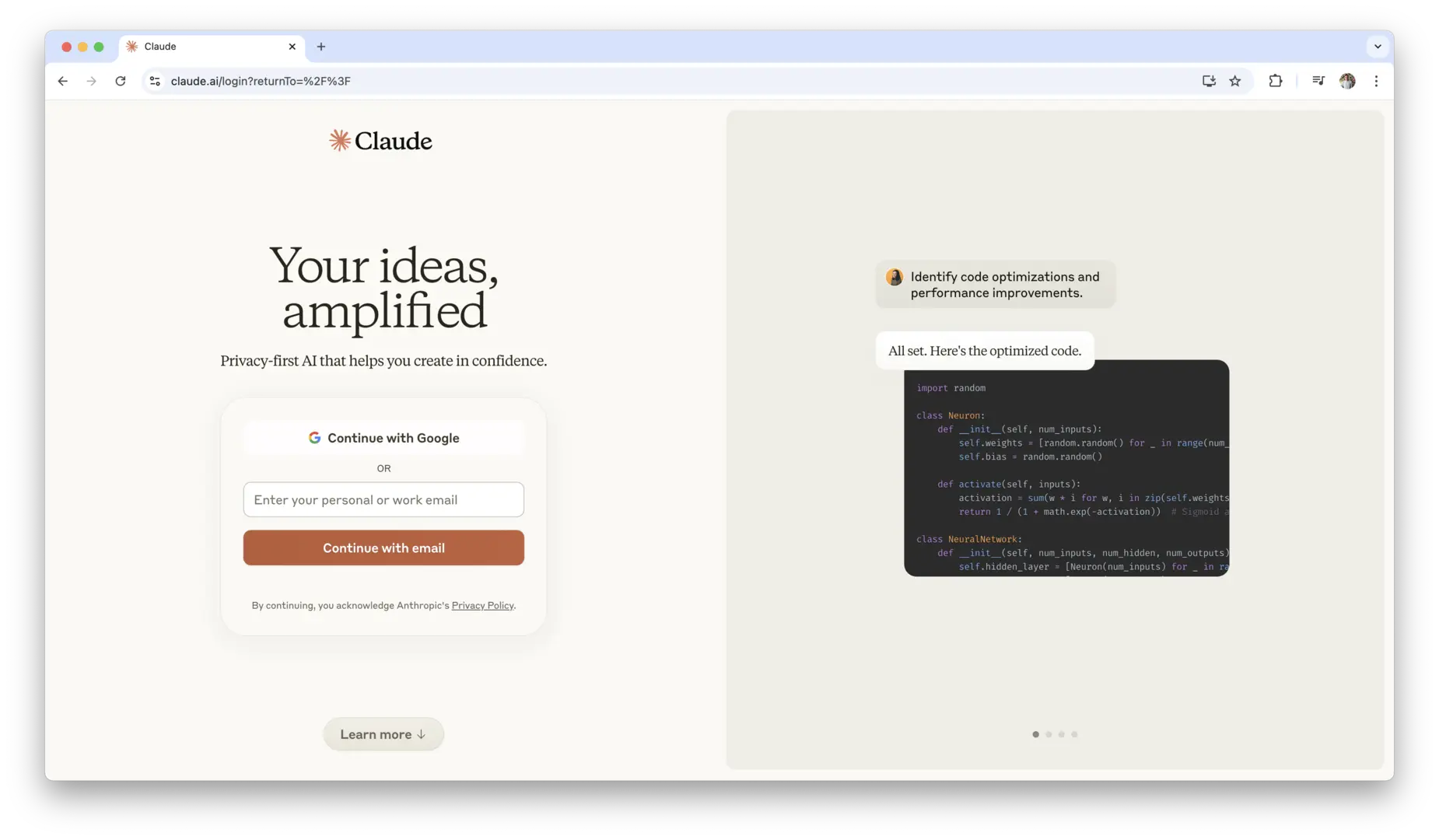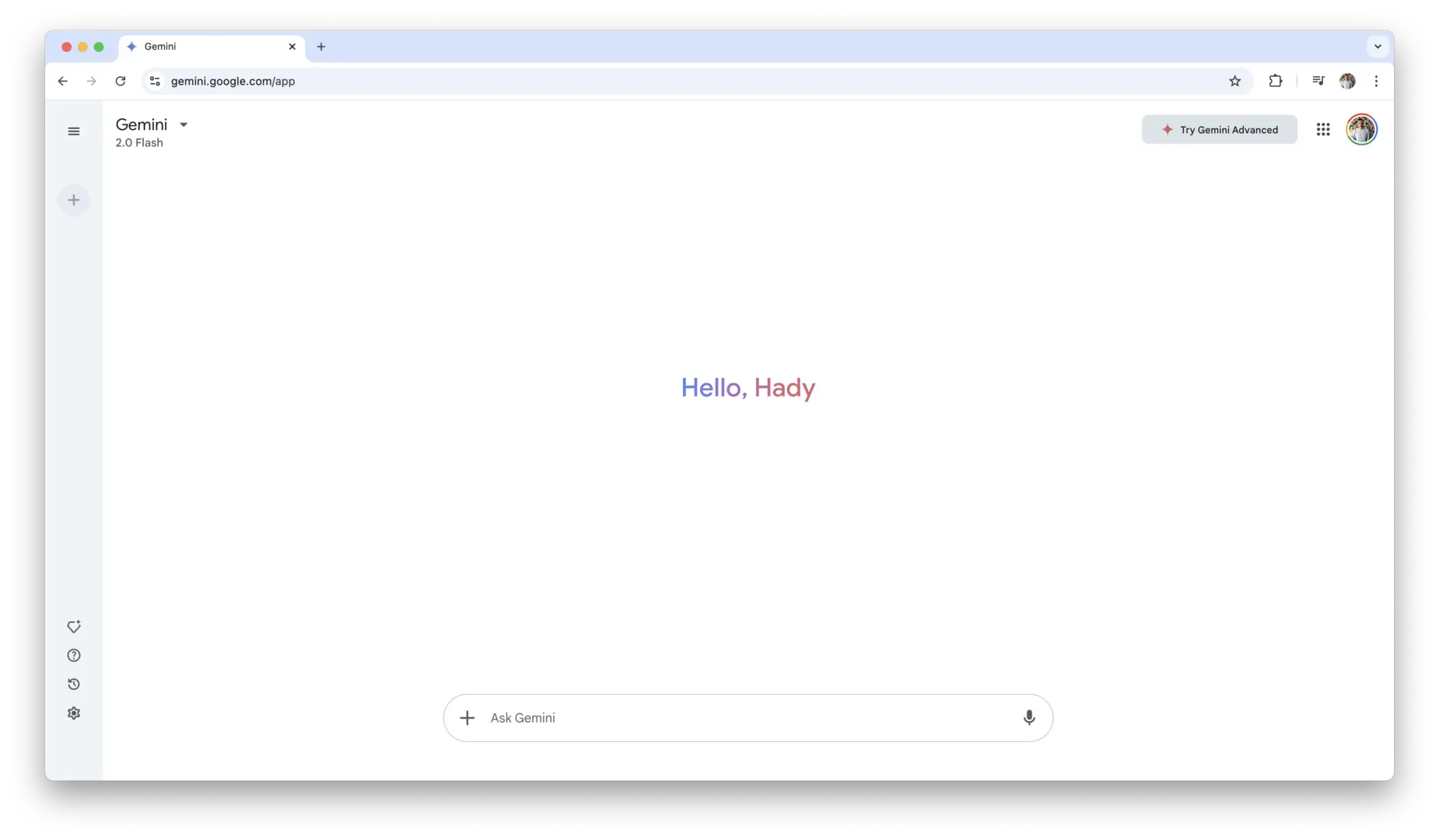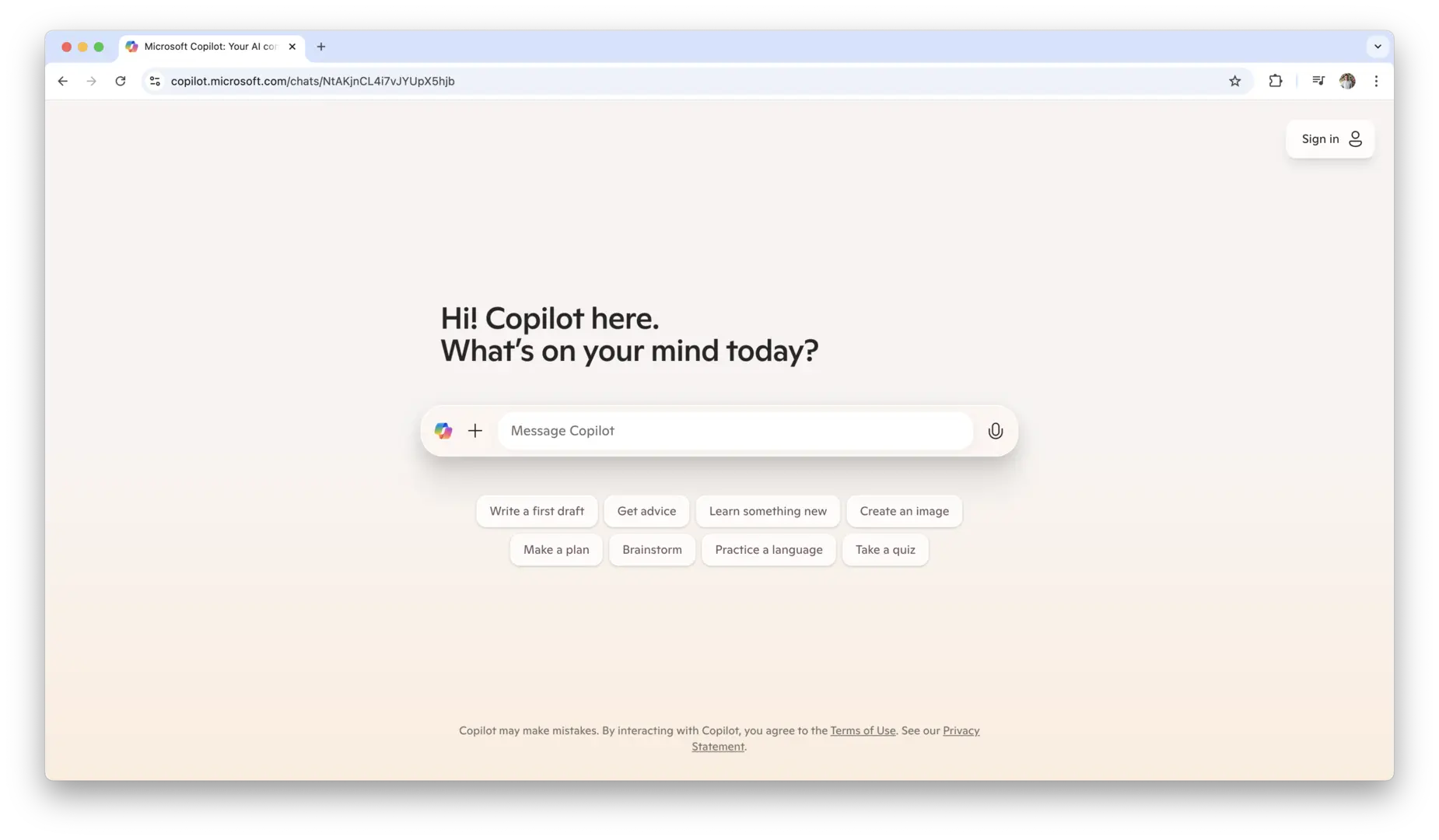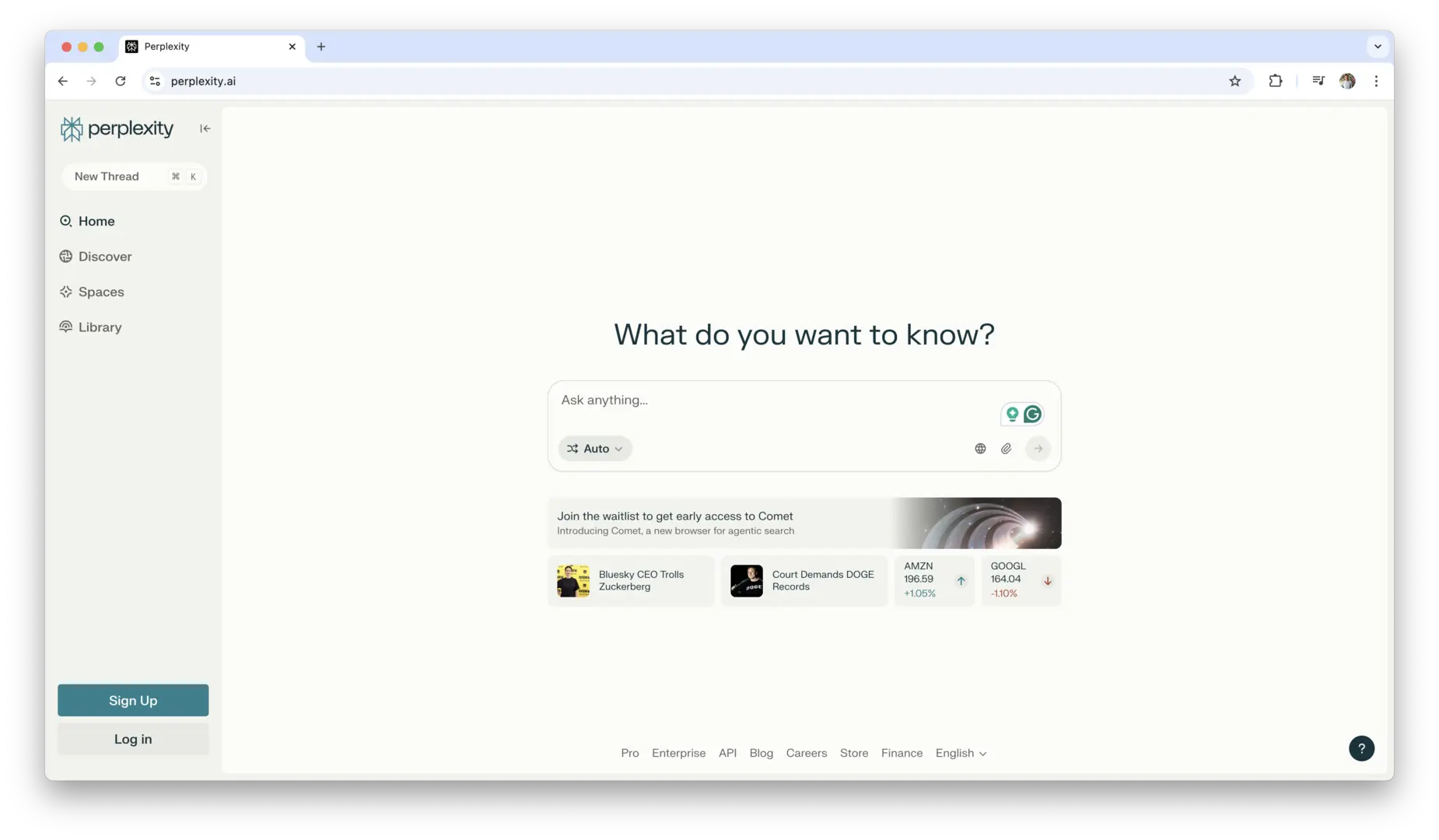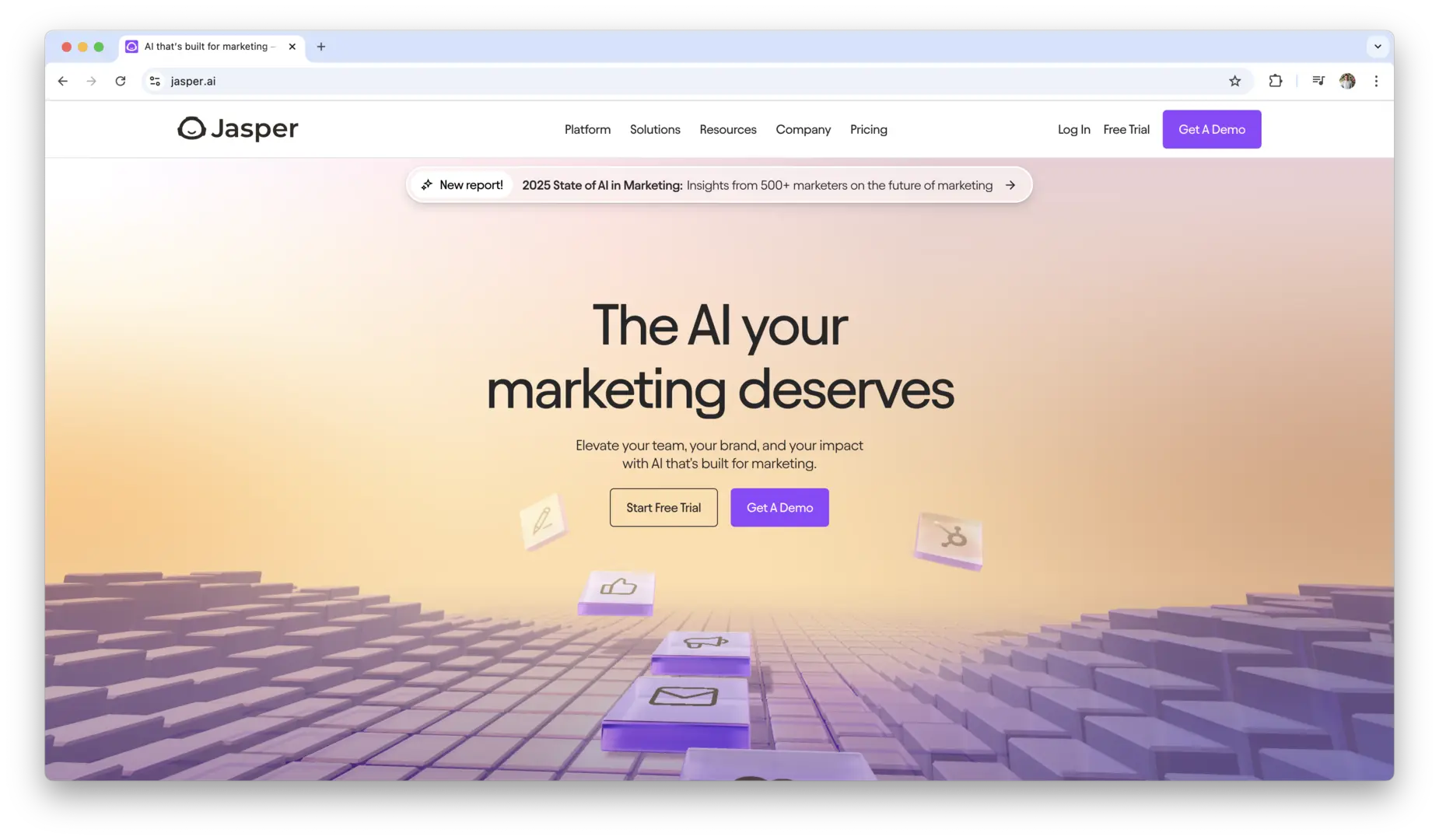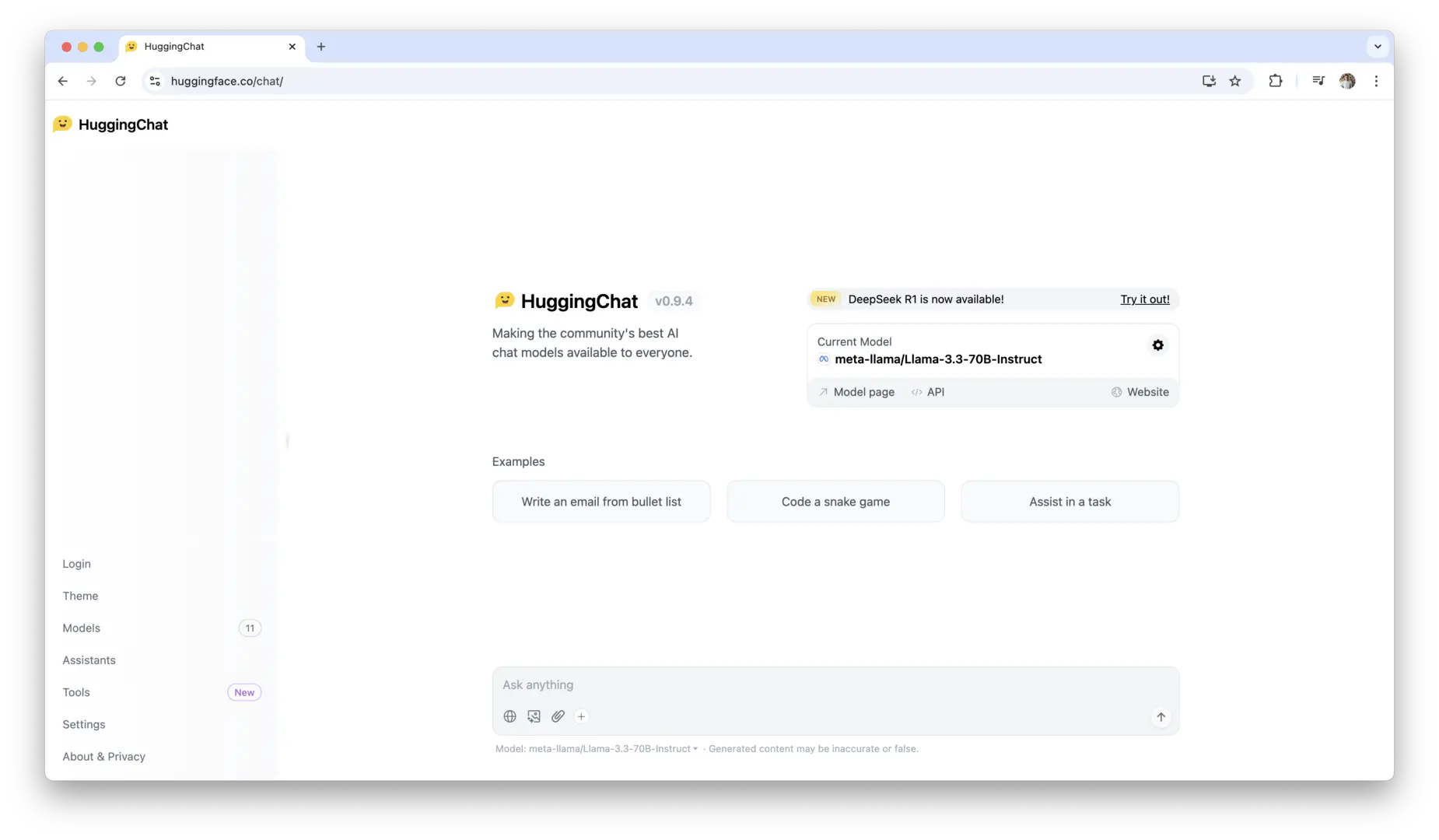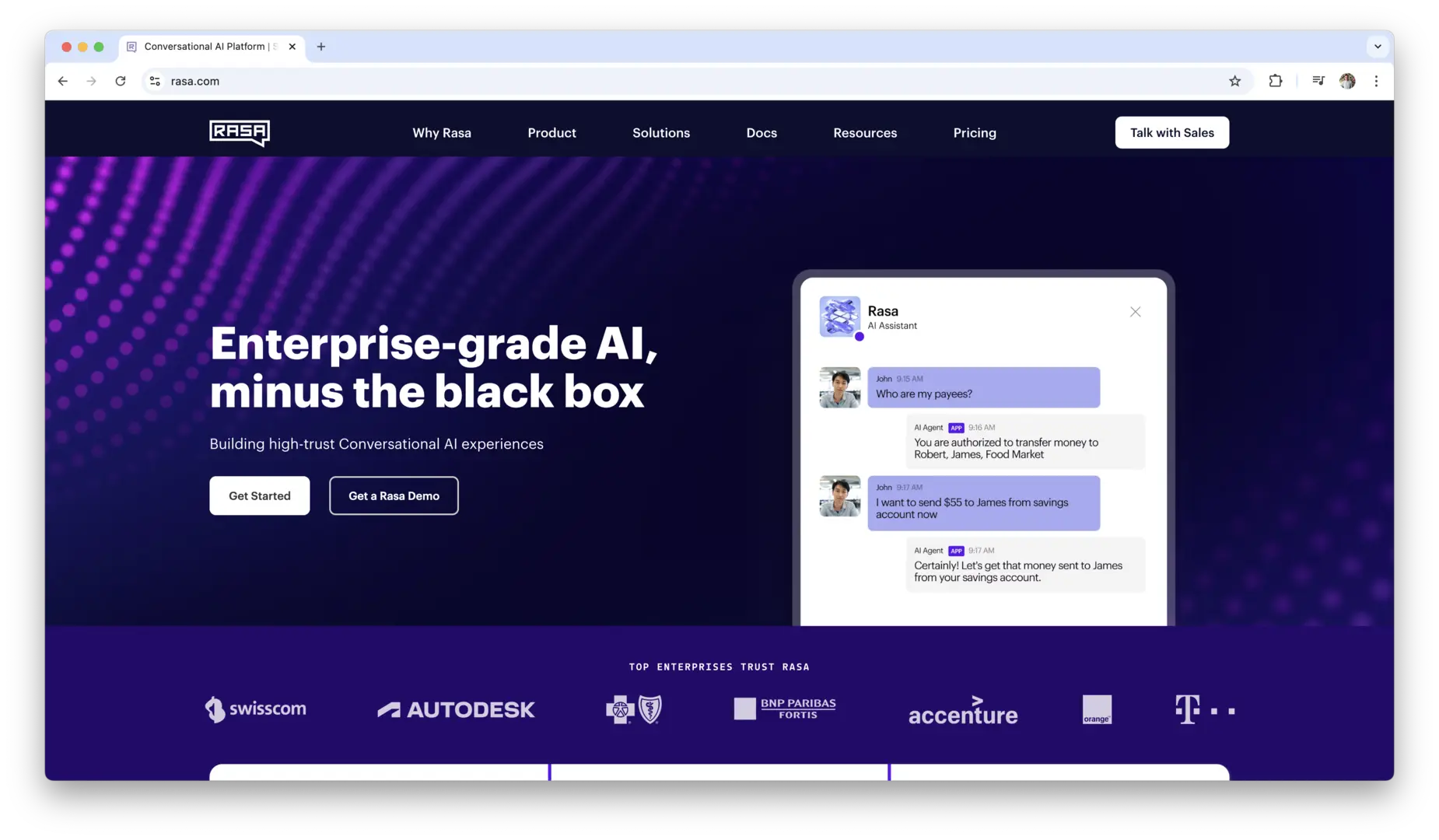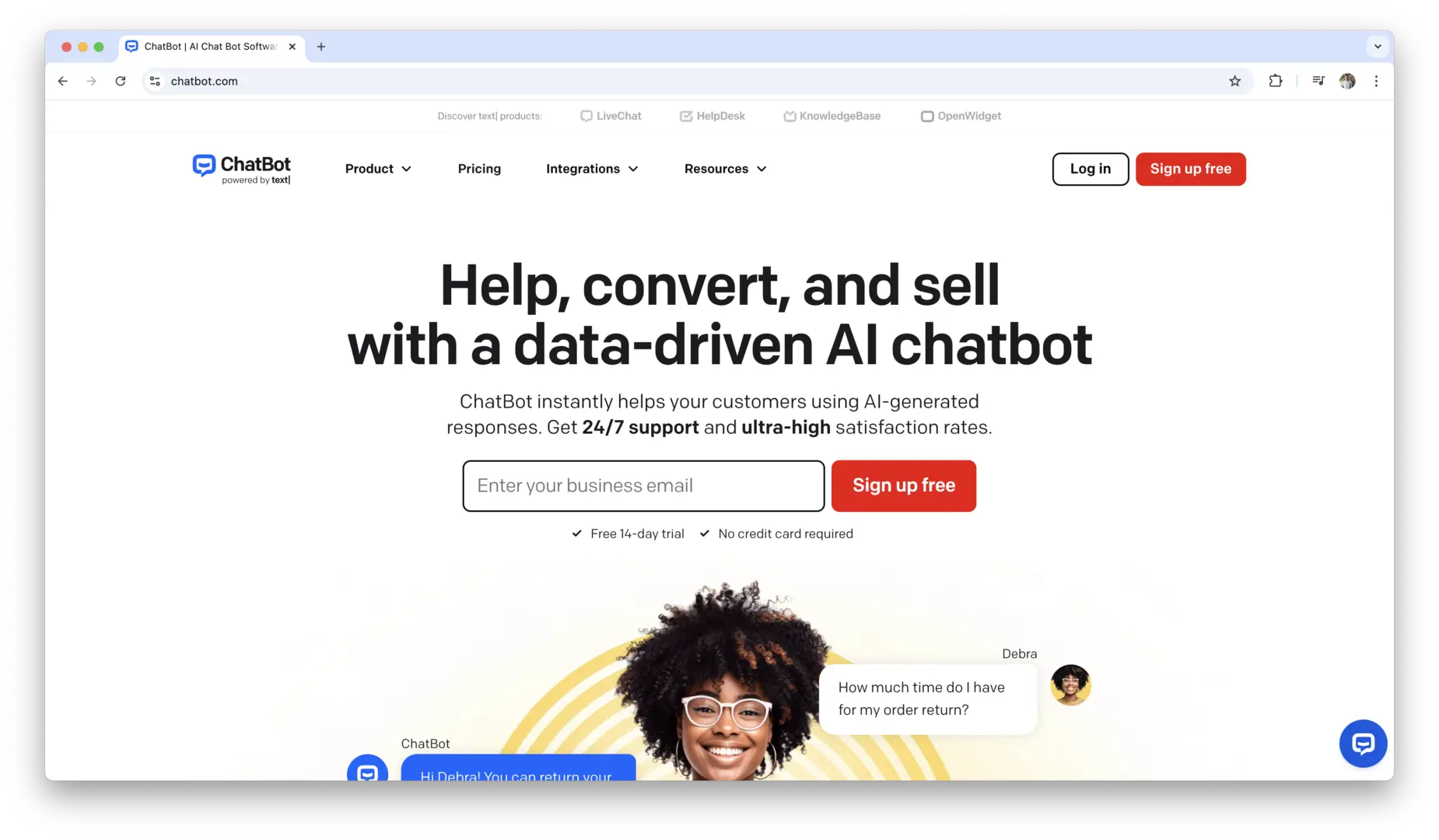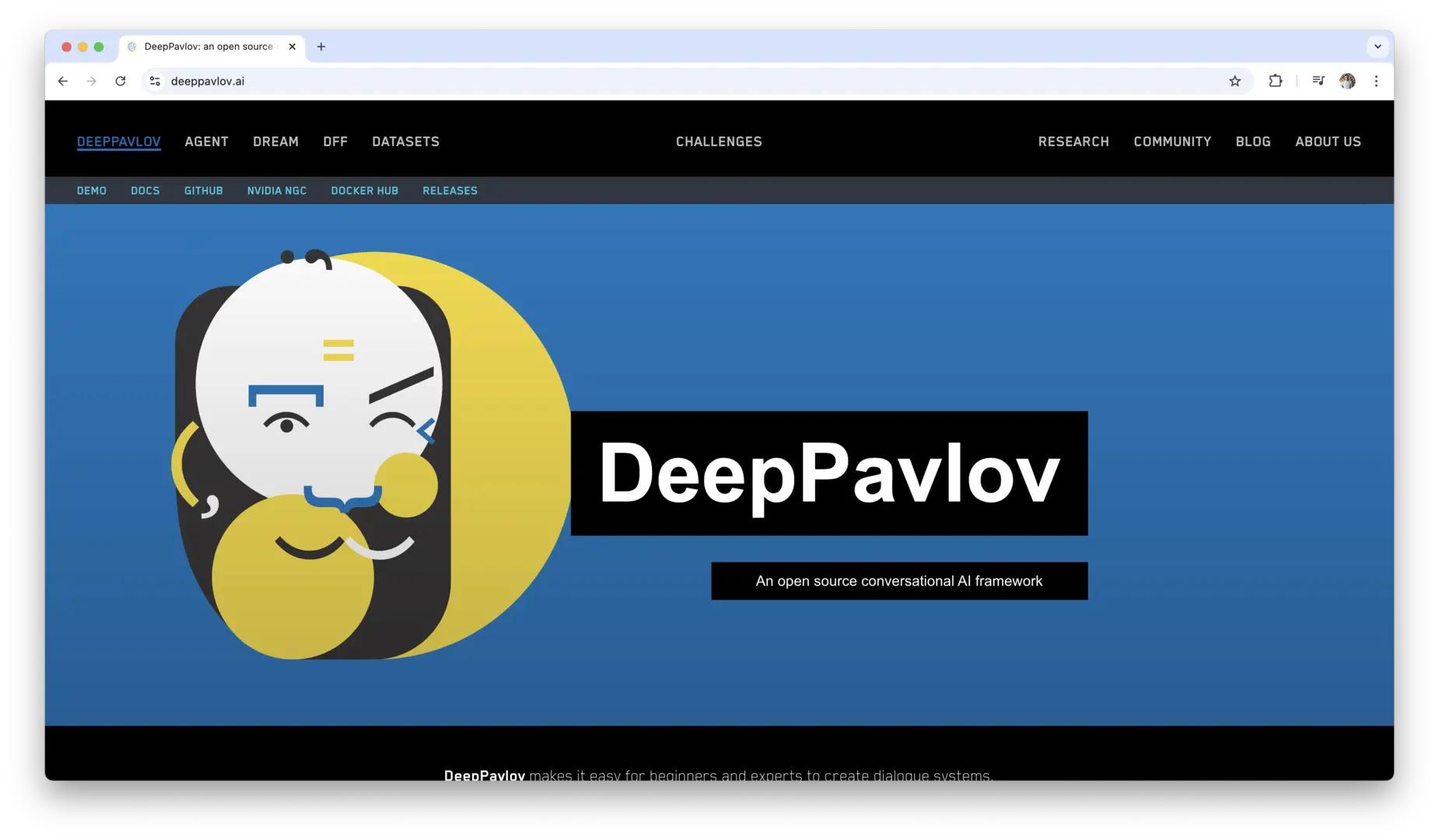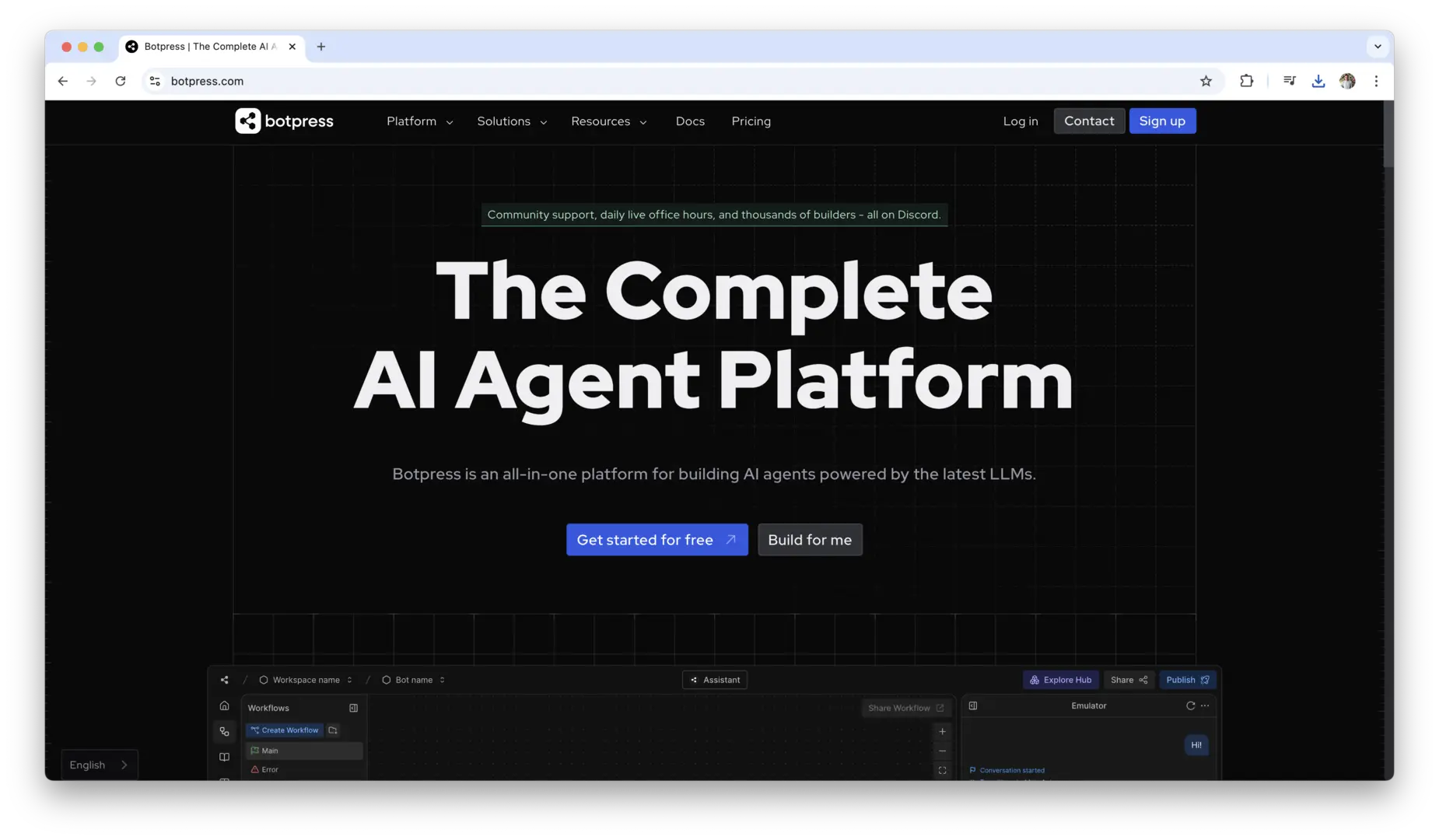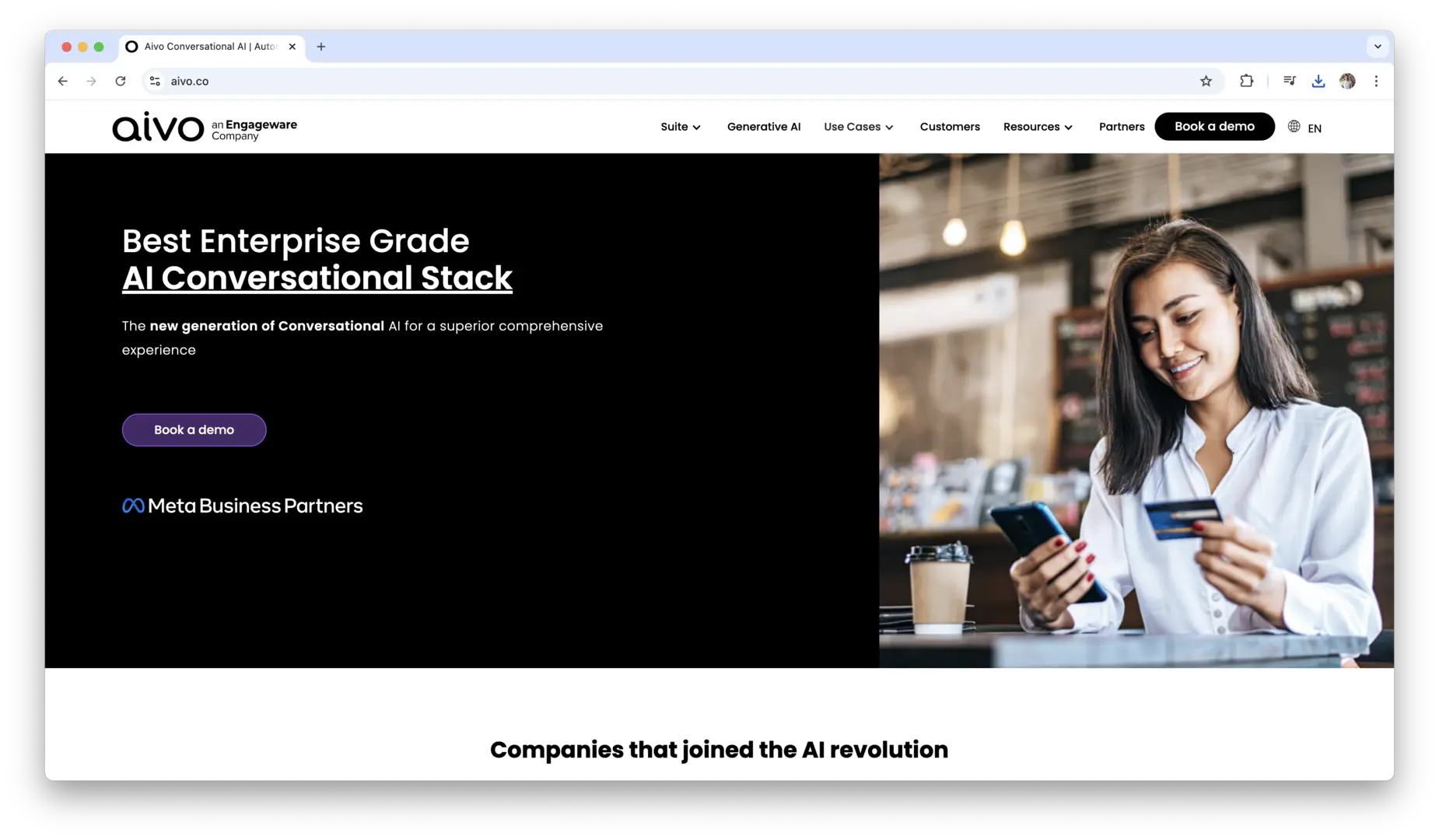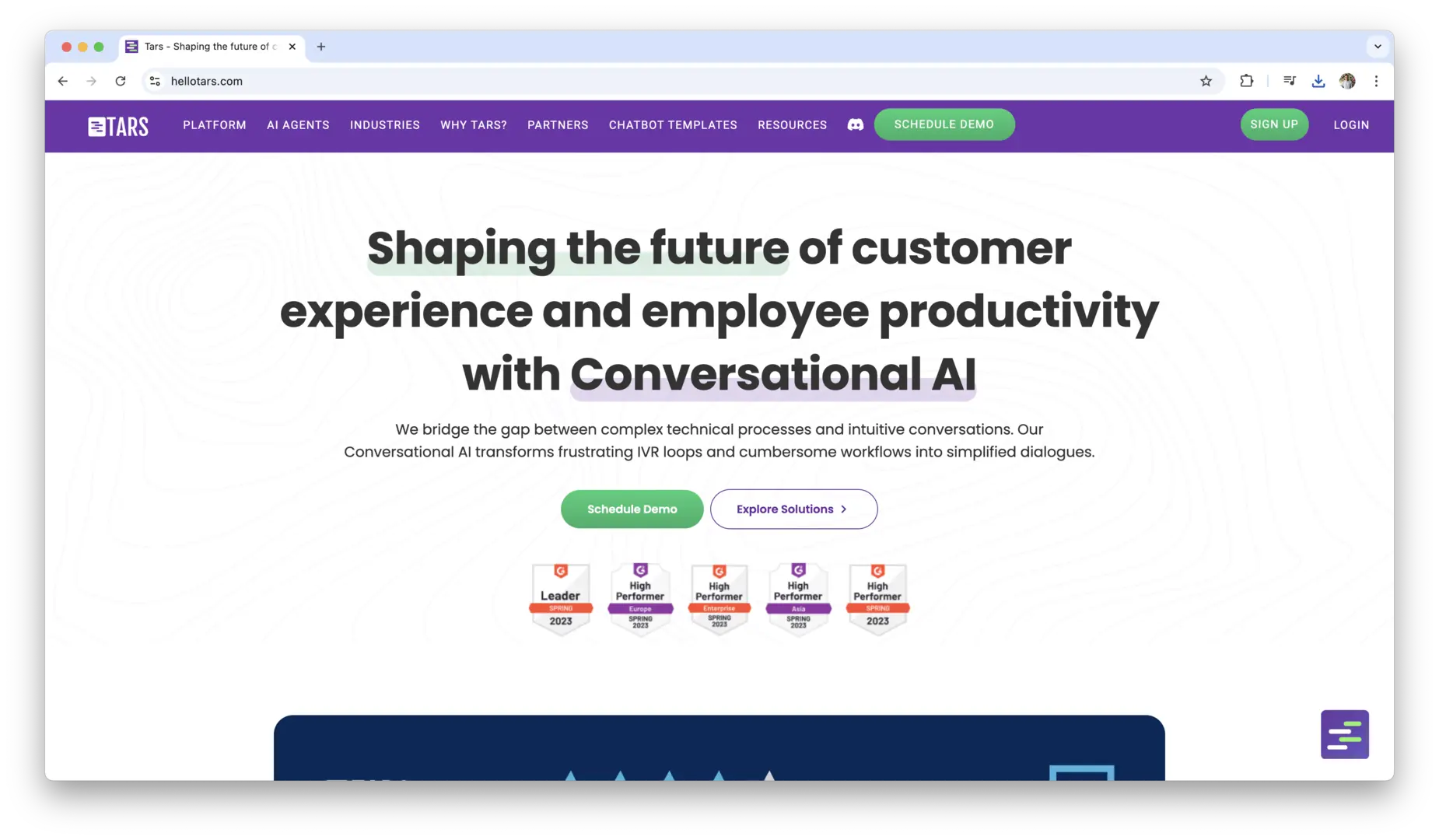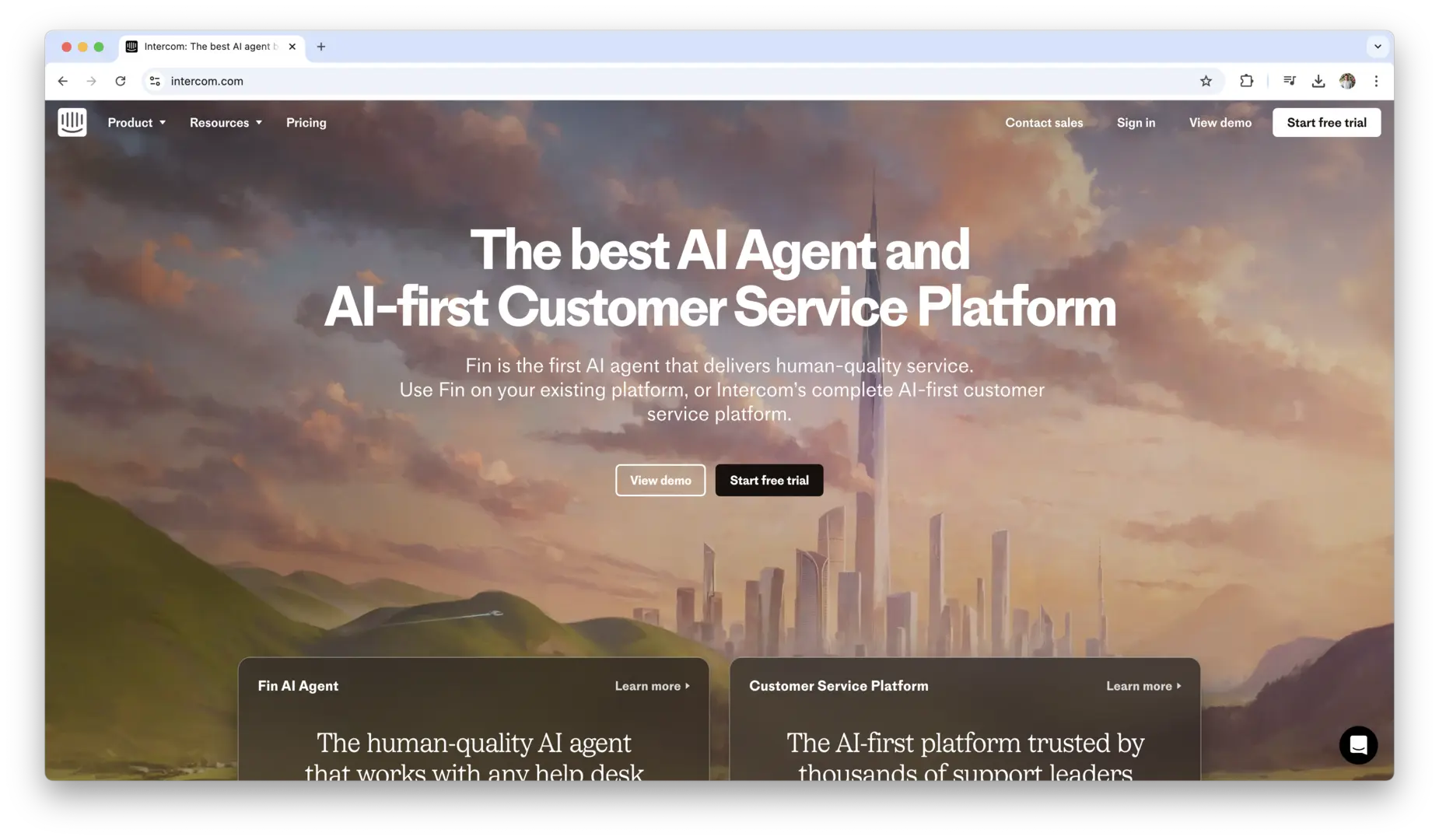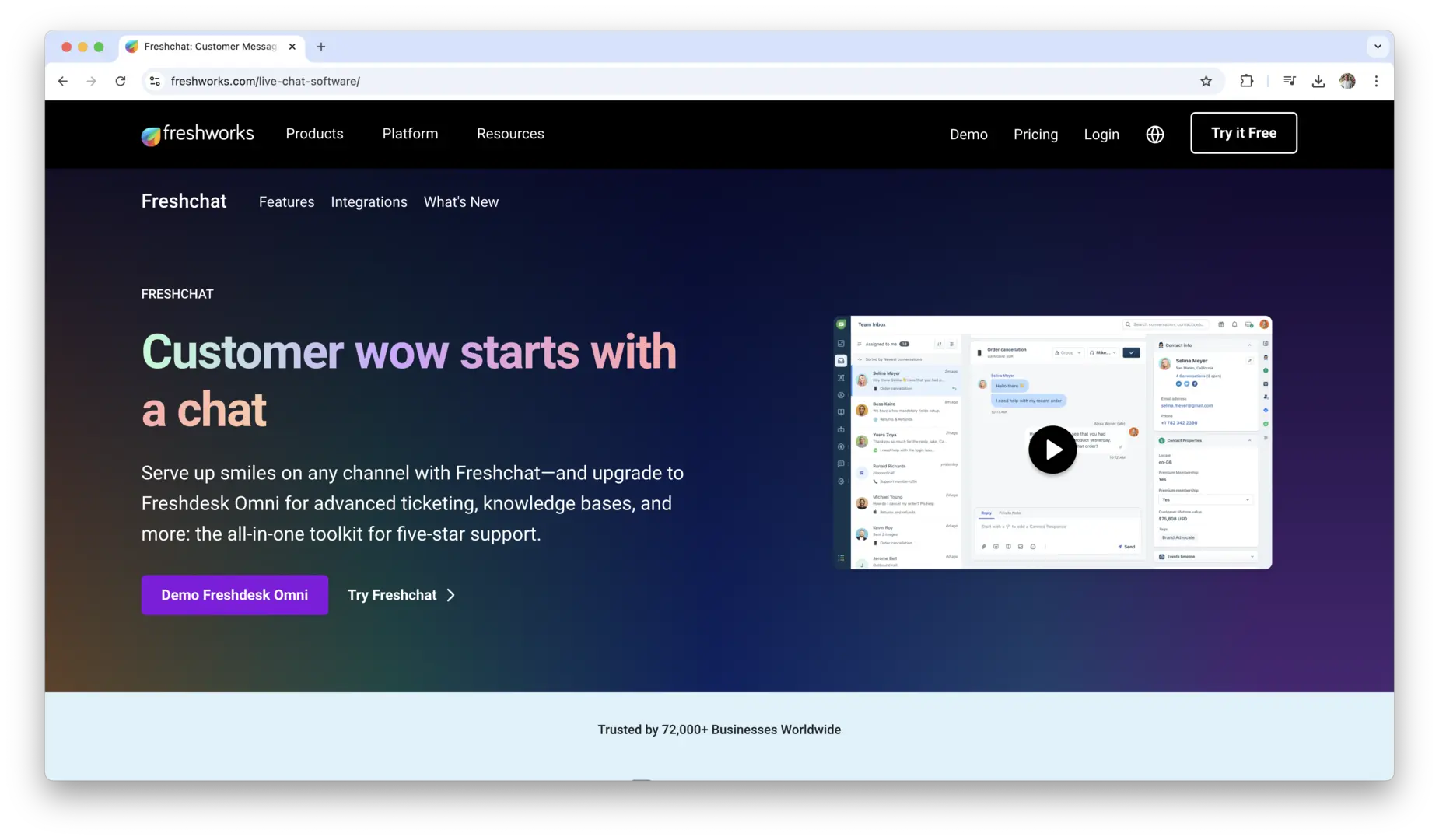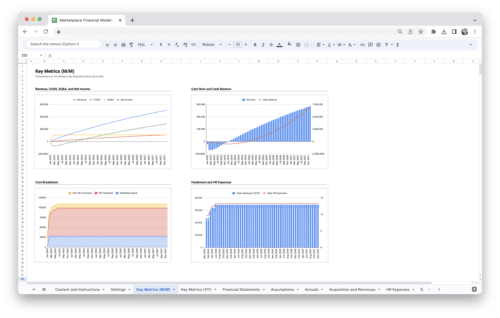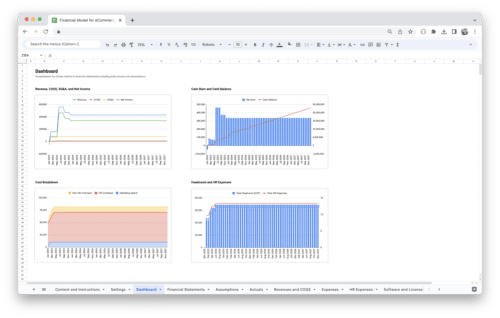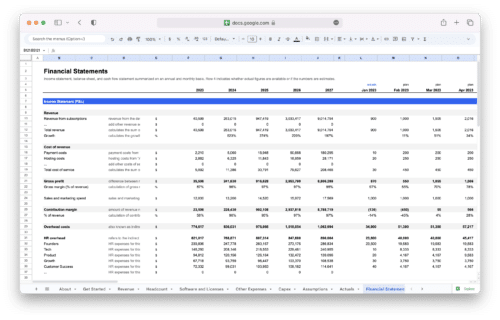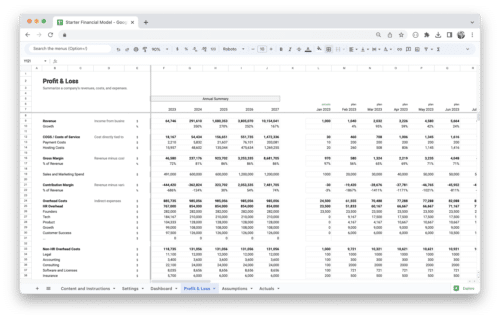Are you looking for an AI chatbot that suits your specific needs better than ChatGPT? While ChatGPT is widely popular, it’s not always the best fit for everyone. Whether you’re seeking more advanced features, a chatbot with specific capabilities, or simply something that offers better privacy and customization, there are plenty of great alternatives to consider.
The right AI can help streamline your workflow, improve customer service, or even create content more efficiently. In this guide, we’ll explore the best ChatGPT alternatives, each with unique strengths and use cases, to help you find the perfect solution for your business or personal needs.
What are AI Chatbots?
AI chatbots are sophisticated programs powered by artificial intelligence designed to simulate human conversation. These chatbots use natural language processing (NLP) and machine learning algorithms to understand and respond to text or voice inputs. Their main function is to interact with users in a human-like manner, answering questions, offering assistance, or providing recommendations based on the input they receive.
AI chatbots can be deployed across various platforms such as websites, mobile apps, social media, and messaging services to improve communication and enhance user experiences. From handling customer service queries to offering personalized content, these tools are reshaping how businesses and individuals interact with technology.
Their Growing Importance
- AI chatbots streamline communication, allowing businesses to interact with users at scale while providing timely responses.
- They reduce operational costs by automating routine tasks, freeing up human agents for more complex issues.
- AI chatbots help improve customer satisfaction by providing instant, 24/7 support without delays or waiting times.
- With the rise of remote work and digital transformation, AI chatbots have become essential tools for businesses to manage customer queries and internal operations efficiently.
- These tools are becoming increasingly sophisticated, offering not just text-based interactions but also integrating voice, video, and even multimodal communication.
- AI chatbots improve personalization by tailoring responses based on user data, making interactions more relevant and engaging.
- They enhance scalability for businesses, allowing them to handle large volumes of interactions without the need for a proportional increase in staff.
Why People Seek ChatGPT Alternatives
- Cost considerations: Some users may find the subscription fees for ChatGPT’s premium versions expensive and are looking for free or more affordable alternatives.
- Feature limitations: Certain users may feel that ChatGPT does not meet their specific needs, especially in terms of industry-specific use cases or advanced integrations.
- Privacy concerns: Users or businesses that handle sensitive data may prefer alternatives that offer greater control over data privacy or on-premise deployment.
- Accuracy and reliability: Some alternatives may perform better in specific areas such as research, content generation, or customer service, where accuracy is critical.
- Customization and flexibility: Some AI chatbots allow users to fine-tune or train the model on their own data, which ChatGPT may not support in the same way, leading users to look for more adaptable solutions.
- Regulatory compliance: For businesses in regulated industries (e.g., healthcare, finance), compliance with specific legal standards might drive the search for alternatives that can offer better security and data handling capabilities.
- Specific features: Users may be looking for features like multimodal AI or API access that aren’t available with ChatGPT or that are more refined in other models.
Best ChatGPT Alternatives
AI technology has come a long way, and there are now many exceptional ChatGPT alternatives, each with its unique strengths and applications. Whether you’re looking for more affordable options, greater customization, or a chatbot that excels in a specific area, there is an AI solution suited to your needs. Here, we dive into the top ChatGPT alternatives that are making waves in the AI space.
Claude (Anthropic AI)
Claude is a powerful alternative to ChatGPT, designed with a strong emphasis on safety and ethics in AI. Developed by Anthropic AI, Claude prioritizes transparent and controllable responses, making it an excellent choice for businesses or individuals concerned with AI alignment and reducing the potential for harmful outputs. It has the ability to generate detailed, long-form responses and is particularly useful in applications that require creative content or research-oriented tasks.
What sets Claude apart from ChatGPT is its focus on safe AI development, offering a level of predictability and reliability that makes it ideal for use cases where the risk of producing biased or inaccurate information must be minimized. Its ability to handle complex prompts with greater nuance makes it a great choice for more sophisticated needs, such as technical support or high-level content creation.
Claude’s architecture also allows for greater transparency in its behavior, giving users more control over the types of responses generated. This makes it an attractive option for users who need more ethical considerations in their AI interactions, ensuring that responses align with company standards or regulatory requirements.
Google Gemini
Google Gemini represents a significant leap forward in AI chatbots, thanks to its integration with Google’s powerful search infrastructure. Unlike ChatGPT, which relies on a closed dataset, Gemini benefits from real-time search capabilities, making it particularly useful for users who need up-to-date information or fact-checked responses.
Gemini is also multimodal, meaning it can process and generate responses not just through text but also images, videos, and other forms of media. This feature makes it a versatile tool for businesses and content creators who need to integrate AI into their visual or multimedia content strategies. It excels in applications like research, where access to the most current data is critical, and content generation, where multimedia elements can enrich user engagement.
The integration with Google’s ecosystem of tools—such as Google Search, Google Docs, and Google Cloud—adds significant value for users who are already entrenched in that environment. Gemini’s seamless compatibility with these tools can provide a more streamlined user experience and increase productivity.
Microsoft Copilot (Bing AI)
Microsoft Copilot, previously known as Bing AI, is one of the strongest ChatGPT alternatives, especially for businesses already using Microsoft Office or Windows. Copilot is designed to enhance productivity by integrating AI into widely-used software like Word, Excel, PowerPoint, and Outlook.
Copilot excels in providing contextual assistance within the Microsoft ecosystem. For example, it can help create reports, generate data summaries, or even automate workflows. Copilot’s deep integration with these tools makes it an ideal choice for users who want AI support within a familiar interface, rather than switching between platforms. Its ability to generate structured documents, analyze data in Excel, and even assist with scheduling and email management in Outlook makes it incredibly powerful for professionals across various fields.
For users looking to incorporate AI into their daily tasks without the hassle of learning new systems, Microsoft Copilot offers a level of convenience and efficiency that few other alternatives can match. It’s particularly ideal for companies focused on enterprise-level productivity and workflow automation.
Perplexity AI
Perplexity AI is a great alternative for those who need a chatbot that specializes in research and fact-checking. One of its standout features is its ability to not only generate responses but also provide cited sources. This is especially beneficial for users in academia, research, or any industry where the accuracy of information is paramount.
Unlike ChatGPT, which sometimes struggles with referencing its answers, Perplexity delivers answers alongside relevant citations, giving users a transparent, verifiable source for the information provided. It is highly effective for generating summaries, answering questions, and conducting research tasks, particularly when current data is needed.
Perplexity AI is ideal for those who want to ensure the information they are receiving is based on reliable, up-to-date sources. It’s particularly well-suited for use in journalism, research, or academic settings, where trustworthy and verifiable answers are essential.
Jasper AI
Jasper AI is widely recognized as one of the best ChatGPT alternatives when it comes to content creation. If you’re in the marketing or creative industries, Jasper offers a unique suite of tools specifically designed for copywriting, ad generation, blog post writing, and more. Unlike general-purpose chatbots, Jasper has been fine-tuned for tasks that require a high degree of creativity and engagement, making it the go-to AI for businesses looking to generate content at scale.
Jasper’s ability to generate SEO-optimized content and its features tailored to marketing and brand voice make it especially valuable for content marketers. It includes a set of tools that streamline content creation, such as templates for blogs, social media posts, and product descriptions, which can help you quickly produce high-quality material.
Jasper’s integration with various content management systems also makes it easy to publish and distribute content directly from the platform, offering a seamless workflow for marketing teams. For those focused on driving online engagement and SEO rankings, Jasper is a top choice for AI-driven content creation.
HuggingChat (Hugging Face)
HuggingChat, powered by Hugging Face, is an open-source AI model that offers a highly customizable and developer-friendly alternative to ChatGPT. HuggingFace has built a strong reputation for offering state-of-the-art natural language processing models, and HuggingChat leverages this expertise to provide users with robust and scalable chatbot capabilities.
HuggingChat stands out for its open-source nature, allowing developers to fine-tune and customize the model according to their specific needs. It’s an excellent choice for businesses or developers who want to build tailored solutions, whether it’s for customer service, lead generation, or even research.
The flexibility of HuggingChat makes it a great choice for those who want to train their chatbot on specific datasets, allowing the AI to better serve their unique requirements. For anyone working in data science or machine learning, HuggingChat’s open-source model offers a high degree of freedom in creating bespoke AI-driven solutions.
Rasa AI
Rasa AI is an open-source chatbot platform that allows businesses to build highly customizable AI assistants tailored to specific needs. It is one of the best options for users seeking full control over their AI models, as it provides a robust framework for natural language understanding (NLU) and dialog management. Unlike many AI chatbots, Rasa focuses on creating conversational experiences that are tailored to the context of the conversation, rather than relying on generic models.
Rasa’s unique advantage is its flexibility—it can be deployed on-premise or in the cloud, and it supports multiple languages, integrations, and advanced AI features. It’s an excellent choice for businesses that require a private, secure solution with advanced control over the training data. For developers looking to create customized AI solutions for customer support, product recommendations, or lead generation, Rasa provides a powerful, scalable platform.
Chatbot.com
Chatbot.com is a no-code AI chatbot builder that’s incredibly user-friendly and great for businesses looking to quickly implement AI for customer service, lead generation, or e-commerce. With its easy drag-and-drop interface, you can create a fully functional chatbot without any coding experience. Chatbot.com offers pre-built templates designed for various industries, allowing businesses to deploy effective bots in minutes.
What sets Chatbot.com apart is its integration capabilities with a wide range of platforms such as Slack, Facebook Messenger, and Shopify. It also features advanced analytics to track user interactions and optimize bot performance. This platform is best suited for small-to-medium-sized businesses that want a simple, intuitive AI chatbot with minimal setup.
DeepPavlov
DeepPavlov is an open-source conversational AI platform that focuses on natural language processing (NLP) and dialog management. It’s a great alternative for developers who want a high degree of customization and want to train their chatbot on specific datasets to handle specialized tasks. DeepPavlov provides several pre-trained models that can be fine-tuned to meet the needs of various industries.
Its integration with Python makes it an ideal choice for developers looking for an advanced, developer-friendly platform. It’s especially effective for businesses that require high-level NLP capabilities for tasks like text classification, information extraction, and machine translation. If you’re in a tech-savvy environment and need a customizable AI chatbot solution, DeepPavlov is an excellent option.
Botpress
Botpress is another open-source chatbot framework that focuses on enterprise-level solutions. It’s highly customizable and developer-oriented, offering a full-stack platform for creating conversational AI. With its modular architecture, Botpress allows developers to integrate it with various messaging channels, CRM systems, and analytics tools, making it a versatile solution for businesses looking to build powerful AI chatbots.
Botpress also supports a visual flow builder, which makes it easier to design complex conversational flows without needing extensive coding knowledge. For teams working on sophisticated, scalable chatbot solutions, Botpress offers the perfect balance between flexibility and enterprise-level capabilities.
Aivo
Aivo is a conversational AI platform that focuses on providing real-time customer support and automation for businesses across various industries. With its AI-powered support systems, Aivo can handle customer inquiries in real-time, offering instant solutions to frequently asked questions, ticket creation, and multi-channel support.
What sets Aivo apart is its focus on integration with popular tools like CRM systems and e-commerce platforms, making it an excellent choice for businesses seeking to enhance their customer service capabilities. Aivo also offers multilingual support, which is perfect for companies with global customers looking to provide an efficient, seamless support experience across different regions.
Tars
Tars is an AI chatbot platform that specializes in lead generation and customer conversion. It allows businesses to create custom chatbots that can engage visitors, qualify leads, and improve conversion rates through interactive, personalized conversations. Tars excels in providing a chatbot experience that feels like a real-time conversation, allowing businesses to engage with customers effectively.
Tars is particularly strong in e-commerce and digital marketing, offering highly engaging landing page bots that can help boost conversion rates and sales. It integrates with major CRMs and marketing automation tools, which makes it a valuable asset for businesses that rely on AI to automate lead nurturing and sales funnels.
Intercom
Intercom is one of the most popular AI-driven customer support platforms, and for good reason—it combines live chat with AI-powered automation to provide a seamless support experience. Intercom’s chatbot, Resolution Bot, automatically provides answers to customers by pulling from a knowledge base, allowing businesses to reduce response time and improve overall customer satisfaction.
One of Intercom’s standout features is its ability to integrate deeply with other systems like CRM tools, customer databases, and email marketing platforms. Its powerful analytics dashboard allows teams to monitor chatbot performance and fine-tune interactions. Intercom is a great choice for businesses focused on customer support, engagement, and automating routine tasks.
Freshchat
Freshchat is an AI-powered messaging platform from Freshworks that is designed for customer engagement and support. With its bot-powered automation, Freshchat provides a smooth experience for both businesses and customers by automating routine conversations and reducing human intervention. It features AI bots that can handle frequently asked questions and complex workflows.
Freshchat also integrates well with other Freshworks products, making it a solid choice for businesses already using Freshworks CRM or other Freshworks tools. The platform is also optimized for multichannel support, enabling businesses to interact with customers via web chat, mobile apps, and social media.
The world of AI chatbots is expanding rapidly, and these top ChatGPT alternatives are leading the charge in providing unique features and capabilities. Whether you’re looking for an AI that prioritizes ethical considerations, offers real-time information, integrates seamlessly with productivity tools, or specializes in content creation, there’s a perfect solution out there for you. These alternatives offer great flexibility, accuracy, and value, depending on the specific use case you’re tackling.
AI Chatbot Factors to Consider
Choosing the right AI chatbot is not a one-size-fits-all process. To make an informed decision, it’s important to evaluate various factors that align with your specific needs and goals. From accuracy to pricing, and features to security, each element plays a crucial role in determining the effectiveness of your AI assistant.
Accuracy and Response Quality
When selecting an AI chatbot, one of the first things you should look for is accuracy in its responses. The best AI models understand the context of the conversation and provide coherent, relevant answers. Depending on your needs, you might want an AI that can generate highly accurate, human-like responses or one that specializes in certain areas, like technical queries or creative writing.
For instance, if you’re using the chatbot for customer support or technical help, you need one that can offer correct, context-aware answers in real time. Chatbots that are highly accurate in their responses can help you reduce miscommunication and improve efficiency, whether it’s for internal use or customer-facing interactions. A chatbot that struggles with nuance or frequently provides inaccurate responses can result in frustration and inefficiency.
Pricing and Affordability
Pricing is an essential factor to consider, especially if you’re planning to implement AI across your business. While many AI chatbots offer free versions, these often come with limitations in terms of features, capacity, or usage. Paid versions, on the other hand, typically offer expanded capabilities such as higher usage limits, enhanced features, or more customization options.
When evaluating pricing, consider both short-term costs (subscription fees, per-use charges) and long-term value (does the chatbot save time or enhance productivity?). For small businesses or individuals, free plans might be sufficient, while larger businesses might benefit from more robust paid options with higher scalability.
Features (e.g., integrations, API access, customization)
The functionality of a chatbot can greatly influence your decision. Some AI chatbots are built with specific features in mind, such as advanced integrations with other software, API access, or the ability to customize responses. If you’re running a business, you may need a chatbot that can integrate with your CRM, marketing tools, or social media platforms to provide a seamless experience across all your systems.
For developers or those who want to customize their AI further, look for a chatbot that offers API access or allows for deep customization. This feature lets you modify the AI’s responses, adapt it to your industry, and integrate it more effectively into your existing workflows. It’s also helpful if the chatbot allows you to train it on specific data so that it can better serve your unique needs, whether it’s handling complex queries or offering specialized advice.
Data Privacy and Security
Data privacy and security are critical considerations when choosing any AI tool, especially one that handles sensitive data. You need to ensure that the chatbot complies with relevant data protection regulations like GDPR or CCPA. Some AI chatbots might offer end-to-end encryption, ensuring that your conversations are kept confidential, while others might store data for training purposes or future use.
If you’re handling personal, financial, or business-critical information, ensure that the chatbot has proper safeguards in place. Look for tools that offer clear data handling policies, and check whether they give you the option to manage or delete your data. For businesses, a chatbot with robust security protocols can mitigate risks and enhance trust with customers.
Industry-Specific Use Cases
Every industry has its own set of requirements when it comes to AI chatbot functionality. Whether you’re in e-commerce, healthcare, education, or finance, certain features might be more important than others. For example, an AI chatbot used in e-commerce might need advanced product recommendation capabilities, while one used in healthcare might need to comply with strict privacy regulations and handle medical inquiries with high accuracy.
When evaluating a chatbot, assess whether it is designed to cater to your specific needs. Look for chatbots that come with pre-built templates or features tailored to your industry. Additionally, some chatbots allow for more customization to suit unique requirements, such as multilingual support for global businesses or specialized training for highly technical industries.
Ease of Use and Accessibility
The ease of use and accessibility of a chatbot play a significant role in its effectiveness. A complex AI that requires extensive setup or technical knowledge might be a barrier for businesses that need a fast, simple solution. Look for a chatbot with an intuitive interface that doesn’t require a steep learning curve.
Consider whether the chatbot provides easy-to-use features like voice interaction, simple integration with existing tools, and mobile access. The goal is to choose an AI that provides a frictionless experience for both you and your end-users, enabling quick adoption and integration into your workflow.
In addition to ease of use, accessibility should also be a key factor. If your team or customers require multiple language support, make sure the chatbot is designed to operate in various languages. Additionally, check for any accessibility features such as compatibility with screen readers, voice commands, or other assistive technologies to ensure that the chatbot is usable by a diverse audience.
How to Choose the Best AI Chatbot for Your Needs?
Choosing the best AI chatbot requires evaluating several factors that directly align with your business goals, technical requirements, and user preferences. With so many options available, understanding what you need from an AI assistant and matching those needs with the right capabilities is crucial. The process of choosing goes beyond just features—it includes budget considerations, privacy and compliance needs, and ensuring that the chatbot is designed to help you solve your specific challenges.
Matching Chatbot Capabilities to Specific Use Cases
Before committing to a chatbot, you must first understand what problems you want the AI to solve. Are you looking for a chatbot to assist with customer service, generate content, help with research, or enhance internal workflows? Each use case demands a different set of features, and not every chatbot is equipped to handle them.
If you need a chatbot for customer support, look for one that excels in contextual understanding, can provide quick, accurate responses, and integrates easily with your CRM system. Chatbots designed for sales teams, for example, should be able to help generate leads, provide product recommendations, and integrate with your sales pipeline.
For content generation, such as writing blog posts or creating marketing copy, you might want a chatbot with advanced language capabilities and the ability to personalize content based on your audience. In these cases, chatbots like Jasper AI or Writesonic might be a better fit, as they specialize in content creation and optimization.
If your focus is more on research and data gathering, then look for a chatbot like Perplexity AI, which integrates real-time search results and provides cited sources. These capabilities are ideal for users who need the most up-to-date and accurate information without sifting through multiple sources manually.
Lastly, think about scalability. Will the chatbot need to support a growing team or handle a high volume of interactions? If you’re anticipating an increase in usage or expansion into different markets, ensure the chatbot can scale up efficiently and support features like multi-language capabilities or integration with new platforms.
Budget Considerations
AI chatbots vary widely in pricing models, and understanding your budget is crucial to finding the right solution. Some chatbots are free but come with limited features, while others operate on a subscription basis that increases as your usage grows. Choosing a chatbot involves balancing cost vs. value.
For small businesses or personal projects, a free or low-cost AI chatbot with basic functionalities might be sufficient. Many chatbots offer free tiers that allow you to try out the core features before committing to a paid plan. These plans typically come with limitations in terms of usage or available features but can work for light use cases.
When evaluating paid plans, consider whether the chatbot offers tiered pricing based on usage. For instance, you might be charged based on the number of interactions, the number of users the chatbot supports, or the volume of generated content. If you’re a large business with high-volume needs, look for a pricing structure that offers bulk usage discounts or unlimited access for a flat fee.
It’s also important to factor in hidden costs, such as integration fees, customization costs, or the expense of maintaining the chatbot. For instance, if you plan to integrate the chatbot into your CRM, marketing software, or internal tools, you may need to pay for additional integration features or development work. Similarly, if you plan to train the chatbot with your specific data, that may require additional investment in training and fine-tuning.
Privacy and Compliance Concerns
Privacy and compliance are top priorities when choosing an AI chatbot, especially for businesses that handle sensitive customer data or operate in regulated industries. AI chatbots, by their nature, process a significant amount of data, which can raise concerns about how that data is handled, stored, and protected.
The first thing to look for is whether the chatbot complies with data protection regulations like GDPR, CCPA, or other regional data privacy laws. GDPR, for example, requires businesses to handle personal data responsibly and to allow users to request deletion of their data. If you are working in the EU or other regions with strict data laws, make sure that the chatbot provides features like data encryption, user consent management, and the ability to manage or delete data.
Additionally, you should evaluate how the chatbot handles user data. Does it store conversations, or does it anonymize and discard them after the interaction? Are there clear privacy policies that outline how the data will be used? These details are critical, especially for businesses that deal with highly sensitive information, such as financial, healthcare, or legal data.
For businesses that are concerned about confidentiality, choosing a chatbot that offers on-premise deployment or the ability to run on private servers can be an important consideration. This ensures that the data never leaves your network and is entirely within your control, reducing the risk of data breaches or external access.
If you are in a highly regulated industry like healthcare, you may need a chatbot that is HIPAA-compliant and designed to meet the stringent privacy and security requirements of that sector. Always ensure that the chatbot you choose is not only capable of meeting security standards but also offers a transparent approach to data handling, giving you the confidence that your data is safe and compliant with relevant laws.
In summary, selecting the right AI chatbot is a multi-faceted process that involves considering your use case, budget constraints, and privacy and compliance needs. By carefully evaluating these factors, you can find a solution that not only fits your requirements but also provides value in the long run, ensuring both a smooth user experience and the security of your data.
AI Chatbots Pros and Cons
AI chatbots offer incredible value in a variety of applications, but like any technology, they come with both strengths and weaknesses. Understanding these pros and cons is crucial when deciding if an AI chatbot is the right tool for your business or personal use.
AI Chatbots Strengths
- Efficiency and speed: AI chatbots can process a high volume of requests and provide instant responses, improving overall efficiency and reducing wait times.
- 24/7 availability: Chatbots can operate around the clock, providing support or assistance whenever it’s needed, without downtime.
- Scalability: AI chatbots can easily scale to handle an increasing number of users or interactions, making them ideal for businesses with fluctuating demands.
- Cost savings: By automating routine tasks such as customer support, lead generation, and content creation, AI chatbots can reduce the need for human labor, lowering operational costs.
- Consistency: Chatbots provide consistent, standardized responses, ensuring a uniform experience for all users without variation due to human error or mood changes.
- Multitasking capability: AI chatbots can manage multiple conversations at once, ensuring that no query goes unanswered, even during peak hours.
- Personalization: Many AI chatbots can offer tailored experiences, remembering past interactions and adjusting their responses based on user preferences or behavior.
- Data insights: AI chatbots can generate valuable insights based on interactions, providing analytics that help businesses improve services and understand customer behavior.
Weaknesses of AI Chatbots
- Limited understanding of complex queries: AI chatbots often struggle with ambiguous, nuanced, or highly technical queries and may provide inaccurate or incomplete responses.
- Lack of emotional intelligence: While AI can handle tasks and give informative responses, it doesn’t fully understand human emotions, which can result in robotic or impersonal conversations.
- Dependence on pre-set data: Many chatbots rely on predefined datasets and training, meaning they may not be able to adapt quickly to new or evolving topics unless retrained.
- Inability to think creatively: Chatbots are excellent for routine tasks, but they may not be able to generate creative ideas or handle tasks that require outside-the-box thinking, such as strategic decision-making.
- Risk of bias: AI systems are often trained on large datasets, which can inadvertently introduce biases, leading to skewed or discriminatory responses in some cases.
- User frustration with limitations: If a chatbot fails to understand a question or provides inadequate responses, users may become frustrated, especially if they cannot easily escalate the issue to a human agent.
- Security and privacy concerns: Since chatbots handle sensitive data, there’s always the risk of data breaches or misuse, particularly if the chatbot is not equipped with robust privacy measures.
Best Use Cases for Different Needs
- Customer service: AI chatbots are ideal for providing instant support to customers, answering frequently asked questions, and handling basic inquiries without human intervention.
- Lead generation: Chatbots can interact with website visitors, collect basic information, qualify leads, and pass on qualified prospects to sales teams.
- Content creation: AI chatbots like Jasper or Writesonic are excellent for businesses in need of assistance with writing blog posts, product descriptions, or marketing copy.
- Internal team support: For businesses, chatbots can assist with automating internal processes, such as scheduling, document retrieval, or providing employees with FAQs and standard procedures.
- Personalized recommendations: In e-commerce, AI chatbots can analyze user preferences and make personalized product recommendations, improving the customer shopping experience.
- Surveying and feedback: Chatbots can conduct surveys or gather feedback from users in an engaging and efficient manner, making it easier to collect and analyze data.
- Research assistance: AI chatbots like Perplexity or Google Gemini can help researchers quickly gather information from reputable sources, summarize findings, and even cite sources.
- Virtual assistants: Personal AI assistants, like Pi AI, can help manage schedules, make reminders, and streamline day-to-day tasks.
AI chatbots are incredibly versatile and capable of handling a wide range of tasks. While their strengths make them an asset in many industries, it’s essential to weigh these against their limitations to ensure they’re the right fit for your needs.
Conclusion
Choosing the right AI chatbot depends on what you’re looking to achieve. Whether you’re looking for something more customizable, more focused on specific industries, or simply a better price point, there’s a variety of powerful alternatives to ChatGPT that can cater to your needs. From chatbots that specialize in content creation like Jasper and Writesonic to those excelling in research and data like Perplexity AI and Google Gemini, each tool brings something unique to the table. The key is identifying which features matter most to you—whether that’s affordability, scalability, advanced integrations, or a specific focus like customer support or personalization.
Ultimately, the best alternative for you comes down to the use case and context in which you plan to use the AI. It’s about finding the balance between what the AI can do, how well it fits into your existing workflow, and whether it aligns with your privacy or customization requirements. By exploring the different alternatives, you’ll be able to select the AI chatbot that not only matches your expectations but also elevates your operations and customer experience. Take your time testing the tools that stand out, and you’ll soon find the perfect solution for your needs.
Get Started With a Prebuilt Template!
Looking to streamline your business financial modeling process with a prebuilt customizable template? Say goodbye to the hassle of building a financial model from scratch and get started right away with one of our premium templates.
- Save time with no need to create a financial model from scratch.
- Reduce errors with prebuilt formulas and calculations.
- Customize to your needs by adding/deleting sections and adjusting formulas.
- Automatically calculate key metrics for valuable insights.
- Make informed decisions about your strategy and goals with a clear picture of your business performance and financial health.
-
Sale!
Marketplace Financial Model Template
Original price was: $219.00.$149.00Current price is: $149.00. Add to Cart -
Sale!
E-Commerce Financial Model Template
Original price was: $219.00.$149.00Current price is: $149.00. Add to Cart -
Sale!
SaaS Financial Model Template
Original price was: $219.00.$149.00Current price is: $149.00. Add to Cart -
Sale!
Standard Financial Model Template
Original price was: $219.00.$149.00Current price is: $149.00. Add to Cart -
Sale!
E-Commerce Profit and Loss Statement
Original price was: $119.00.$79.00Current price is: $79.00. Add to Cart -
Sale!
SaaS Profit and Loss Statement
Original price was: $119.00.$79.00Current price is: $79.00. Add to Cart -
Sale!
Marketplace Profit and Loss Statement
Original price was: $119.00.$79.00Current price is: $79.00. Add to Cart -
Sale!
Startup Profit and Loss Statement
Original price was: $119.00.$79.00Current price is: $79.00. Add to Cart -
Sale!
Startup Financial Model Template
Original price was: $119.00.$79.00Current price is: $79.00. Add to Cart
